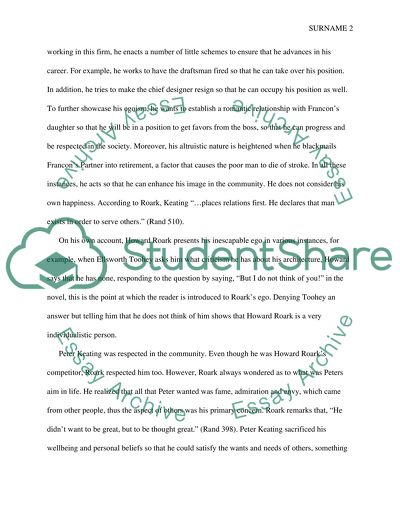Cite this document
(“Objectivist Philosophies in the Text The Fountainhead by Ayn Rand Essay”, n.d.)
Retrieved from https://studentshare.org/literature/1447660-the-fountainhead
Retrieved from https://studentshare.org/literature/1447660-the-fountainhead
(Objectivist Philosophies in the Text The Fountainhead by Ayn Rand Essay)
https://studentshare.org/literature/1447660-the-fountainhead.
https://studentshare.org/literature/1447660-the-fountainhead.
“Objectivist Philosophies in the Text The Fountainhead by Ayn Rand Essay”, n.d. https://studentshare.org/literature/1447660-the-fountainhead.


